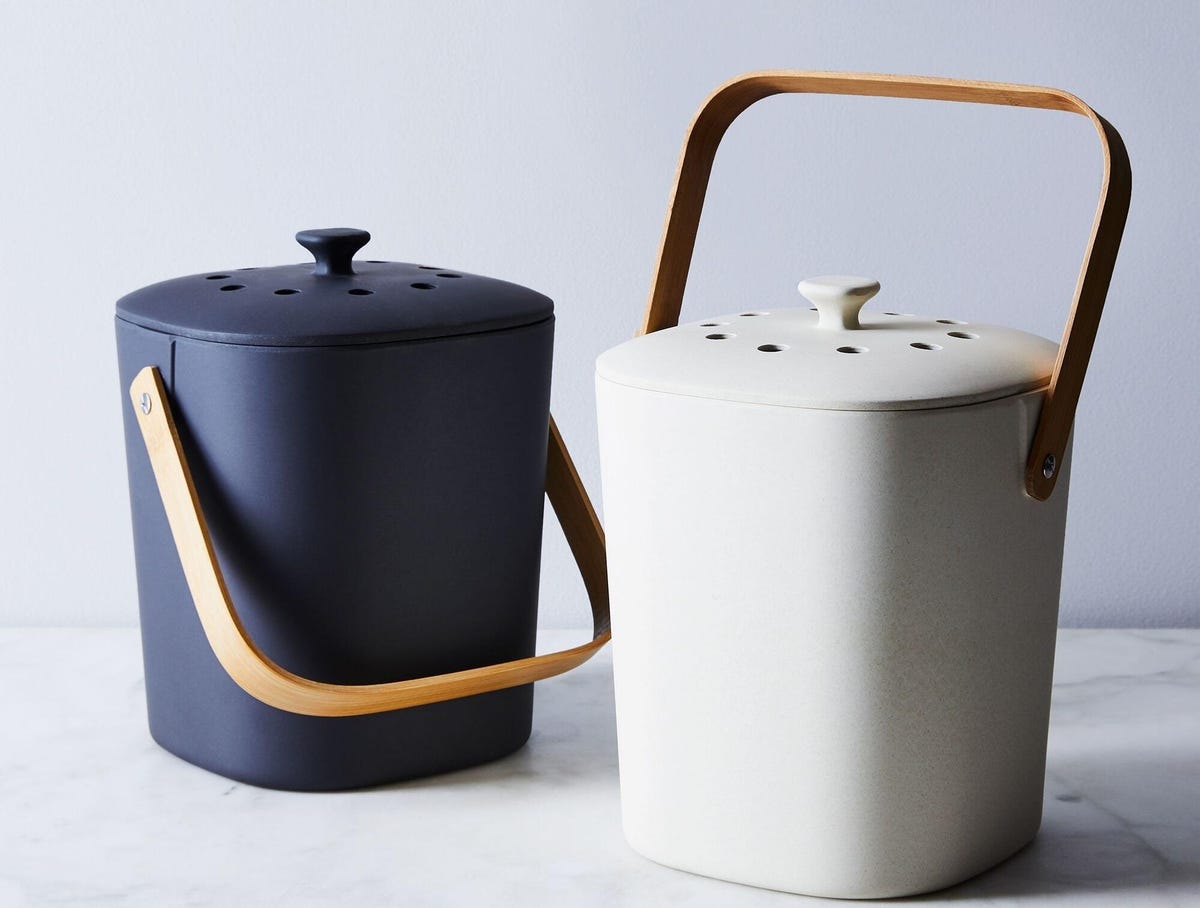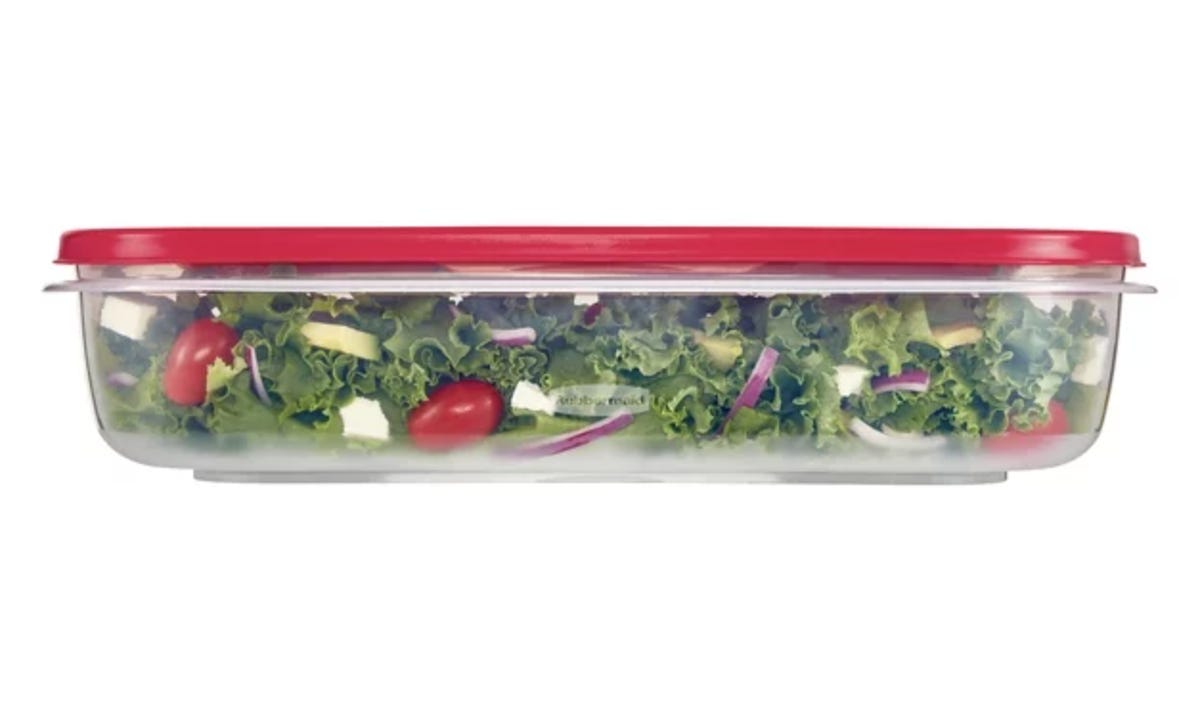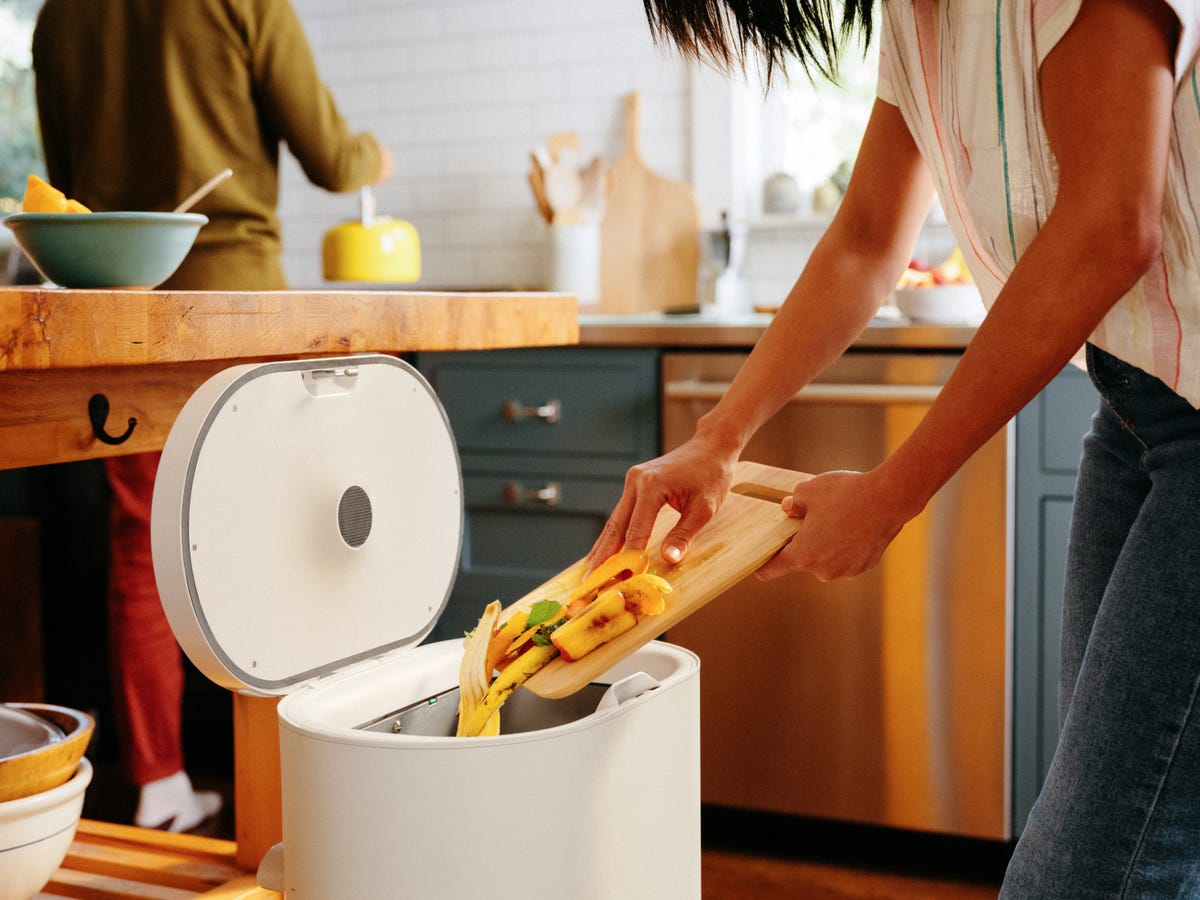If you’re trying to produce less waste in 2024, composting is the obvious way to recycle leftover food scraps. It’s good for the Earth and your garden, but composting can be a smelly endeavor. Many have vowed to start composting only to find the stench of rotting food sitting in a bucket on the counter is too much to handle.
There are a slew of automatic, countertop composters and food scrap processors that help. We recently tested the Lomi composter and the Mill kitchen bin, for instance, but neither one is cheap. And while they do handle the smell with ease, most of these machines don’t even create real compost — they just dehydrate and grind food.
Read more: Lomi Countertop Composter Is 100% Yuck-Free
If you aspire to be a better food recycler but have a delicate olfactory system to consider, one simple trick will take the stink out of composting.
Freeze your food scraps until you’re ready to take them out
If you’re planning to start a compost pile, or are already composting but can’t stand the smell, another way to avoid a smelly kitchen when composting is to toss your food scraps in the freezer until you’re ready to take them out to the pile.
It’s a simple adjustment but one that makes composting much more palatable. To freeze your food scraps, either buy freezer bags and use them repeatedly or dedicate a small plastic container within your freezer to hold scraps. I like using a plastic container so I can run it through the dishwasher after emptying.

Some countertop compost bins promise to reduce odors, but there’s only so much they can do.
Freezing your food scraps — including the smelliest items such as fish skins, spoiled produce and leftovers — until you can transport them to the outdoor pile will keep your kitchen smelling fresh.

A simple plastic storage container is all you need to make composting an odorless affair.
I find this particularly helpful living in an apartment in Brooklyn, where it’s harder to make runs down to the compost bin in the front of the building. If you’re worried about losing too much space in your freezer, use freezer bags and take your food scraps out to the pile as frequently as you need.
You can compost most, but not all food scraps
Creating a successful compost routine also requires learning what you can and can’t compost. The bulk of kitchen scraps are compostable — pits, cores, rinds, leftover, meat, dairy and coffee grounds — but foods with high concentrations of oil and sugar are not ideal to add to the pile. If you’re wondering how to start a compost pile, we’ve devised this handy guide for first-time composters.

Automatic food processors such as Mill and Lomi work well to eliminate food odors, but both will cost you more than $500.
For more tips on keeping green in the kitchen, read about the proper ways to recycle takeout containers and the best tools for fighting kitchen waste.

